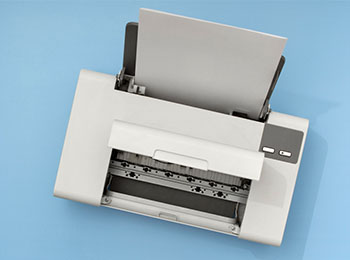All Categories
 Batteries & Power
Batteries & Power
 Computer Accessories
Computer Accessories
 Daily Appliances
Daily Appliances
 Telecom & Networking
Telecom & Networking
 Storage & Cables
Storage & Cables
 Electrical Equipments
Electrical Equipments
 Building Equipments
Building Equipments
Most Popular
-
 Lenovo DisplayPort f/ VGA Monitor Cab DisplayPort - VGA, 0.2 m, VGA, DisplayPort, Male, Male, 1920 x 1200 WUXGA - Approx 1-3 working day lead.
Rated 5.00 out of 5£35.62 Inc.Vat: £42.74
Lenovo DisplayPort f/ VGA Monitor Cab DisplayPort - VGA, 0.2 m, VGA, DisplayPort, Male, Male, 1920 x 1200 WUXGA - Approx 1-3 working day lead.
Rated 5.00 out of 5£35.62 Inc.Vat: £42.74 -
 Samsung DC Power Adaptor BN44-00394M, Universal, Indoor, Black - Approx 1-3 working day lead.
£36.73 Inc.Vat: £44.07
Samsung DC Power Adaptor BN44-00394M, Universal, Indoor, Black - Approx 1-3 working day lead.
£36.73 Inc.Vat: £44.07
-
 Software & Warranty
Software & Warranty
 Laptops Brands
Laptops Brands
Terms and Conditions
The terms of clause 12 are called explicitly to the Customer's notice.
1) Interpretation
1.1. Defined Terms. The definitions provided herein pertain to these Conditions:
Business Day: A day when banks in New York are open for business, excluding Saturdays, Sundays, or US public holidays.
Commencement Date: As defined in clause 2.2.
Conditions: These terms and conditions are subject to updates per clause 2.7.
Contract: The Agreement establishing terms and conditions for the Supplier’s supply of goods or services to the Customer.
Customer: The individual or business remitting payment to the Supplier for Products or Services.
Deliverables: The products specified in the Order.
Delivery Location: As defined in clause 4.2.
E-Delivery: Software or a license key delivered electronically without a physical form.
Force Majeure Event: As described in clause 15.
Goods: The items listed in the Order, wholly or partially.
Goods Specification: Any specification for Products agreed upon in writing through quotations, purchase orders, or order acceptance between the Customer and Supplier.
Intellectual Property Rights: Encompasses patents, rights to inventions, copyrights, trademarks, business names, domain names, goodwill, design rights, database rights, and all other intellectual property rights, whether registered or unregistered.
Order: The Customer’s written acceptance of the Supplier’s quotation or, if applicable, the Customer’s purchase order form detailing the request for Goods and Services.
Services: The Supplier provides services and deliverables to the Customer as specified in the Service Specification.
Service Specification: The written description or specification of the Services the Supplier offers the Customer.
Supplier: Networking Arts LTD is registered in the UK with Registration #14211222.
Supplier Materials: As defined in clause 8.1(g).
Customer Default: As described in clause 8.2.
1.2. Construction. The following guidelines are applicable within these Conditions:
- Any entity, whether a natural person, corporate body, or unincorporated body, is considered a “person.”
- References to a party include its personal representatives, successors, or authorized assigns.
- All mentions of laws or statutory provisions refer to their most recent revised or reenacted forms. Subsidiary legislation related to a statute or statutory provision, regardless of amendments or reenactments, is referred to by their respective references.
- The term “writing” includes faxes and emails. Phrases such as “including,” “in particular,” or similar expressions within a sentence serve as illustrations and shall not restrict the interpretation of the preceding words.
2) Contractual Grounds
2.1. Offer and Acceptance
The customer’s order signifies their intention to purchase products or services under these conditions.
2.2. Formation of Contract
The Contract becomes effective upon the Supplier’s written acceptance of the Order, marking the commencement date of the agreement.
2.3. Agreement Scope
The complete terms of the parties’ agreement are detailed within the Contract. The Customer acknowledges reliance solely on provisions explicitly included in the Contract and disclaims any dependence on representations, assurances, guarantees, or warranties not incorporated expressly within.
2.4. Purpose of Descriptive Materials
Any samples, drawings, descriptive materials, or advertisements provided by the Supplier and descriptions of Goods or Services displayed on the Supplier’s website offer a general understanding of the Goods or Services. They do not constitute a binding part of the Agreement nor hold legal effect.
2.5. Contractual Provisions
The Contract is governed exclusively by the terms outlined herein, superseding any additional terms sought to be imposed by the Customer or implied through trade, custom, or business practice.
2.6. Validity of Quotations
Supplier quotations, subject to stock availability, are not considered offers and remain valid solely for the Business Day of their issuance.
2.7. Applicability of Conditions
These conditions apply universally to the supply of goods and services without bias towards any specific state or jurisdiction.
3) Goods
3.1. Specification of Goods
The specifics outlining the Goods can be found within the quotation, Order, or Goods Specification.
3.2. Modification of Product Specifications
If deemed essential for compliance with pertinent statutory or regulatory obligations, the Supplier reserves the right to alter the Product Specifications.
4) transfer of goods
4.1. Documentation with Goods
For each shipment of Goods, the Supplier ensures the inclusion of a delivery note containing the Order date, relevant Customer and Supplier reference numbers, details of Goods type and quantity (including applicable code numbers), and any specific storage instructions.
4.2. Delivery Arrangements
Upon notifying the Customer of Goods availability, the Supplier undertakes delivery to the specified Delivery Location outlined in the Order or as agreed upon by both parties.
4.3. Completion of Delivery
Delivery of Goods is considered complete upon arrival at the specified delivery location.
4.4. Inspection and Reporting
Within 48 hours of delivery completion, the Customer must inspect the items. They must report any discrepancies, including incorrect quantity, faulty goods, non-compliance with specifications, or visible damage, adhering to the return policy and providing necessary written notification to the courier upon receipt of visibly damaged goods.
4.5. Delivery Schedule and Force Majeure
Delivery dates provided are estimates, and time is not considered critical. The Supplier is not liable if a Force Majeure Event hinders Goods delivery or due to inadequate delivery instructions from the Customer.
4.6. Supplier's Liability
If the Supplier cannot deliver, liability is limited to costs and expenses incurred in locating similar replacement goods in the least expensive market, deducting the Goods’ Price. Failure to provide adequate delivery instructions absolves the Supplier from liability due to a Force Majeure Event.
4.7. Delivery Attempts
Within 5 Business Days, the Supplier will attempt delivery a maximum of two times.
4.8. Customer’s Failure to Accept Delivery
If the Customer fails to accept or take delivery within 5 Business Days of notification:
- The Supplier stores the Goods, charging related costs to the Customer.
- Delivery is deemed to occur on the first Business Day at 9:00 am following the Supplier’s notification.
4.8. Non-Acceptance of Goods
Failure to accept delivery within 5 Business Days empowers the Supplier to resell, return, or dispose of Goods, accounting for any surplus or charging the Customer for any shortfall, after deducting reasonable costs.
4.9. Improper Quantity of Goods
Should the Supplier deliver more or fewer Goods than ordered, the Customer cannot reject the Goods. However, notification of improper delivery quantity permits a pro-rata adjustment to the invoice.
4.10. Delivery in Installments
Goods may be supplied in installments, invoiced, and paid for separately. Each installment constitutes a distinct contract. Delay or defect in one installment does not entitle the Customer to cancel or withhold payment for other installments.
5) Quality of Goods
5.1.
1. The Supplier now ensures that the goods will
- Exhibit satisfactory quality.
- Conform precisely to their description and any relevant Goods Specification.
- Be devoid of significant design, material, or workmanship flaws.
- Be suitable for any specific purpose as indicated by the Supplier.
5.2.
Under section 5.3, in the event the Customer discovers that some or all of the goods do not meet the warranty outlined in clause 5.1 and duly notifies the Manufacturer in writing within a reasonable period, the Customer shall directly contact the Manufacturer to discuss rectifying or replacing the defective goods. The Supplier must be afforded a reasonable opportunity to inspect the goods, and upon request, the Customer shall return the goods to the Supplier.
5.3.
The Supplier shall not be held accountable if the products fail to meet the warranty in clause 5.1 under the following circumstances:
- The defect arises due to the Customer’s failure to adhere to the Supplier’s oral or written instructions regarding the storage, installation, commissioning, use, or maintenance of the Goods, or in the absence of such teachings, good trade practices.
- The defect arises from the Supplier’s compliance with any drawing, design, or Goods Specification provided by the Customer.
- The Customer modifies the Goods in any manner after issuing a notice as per clause 5.2.
5.4.
Except as explicitly stated in clause 5, the Supplier bears no responsibility for any failure of the Products to meet the warranty outlined in article 5.1.
5.5.
Any repaired or replacement goods furnished by the Supplier under section 5.2 shall be subject to the provisions stipulated in these Terms.
6) Title & Risk
6.1.
Upon successful delivery, ownership of the Items shall be transferred to the Client.
6.2.
Upon the Supplier’s receipt of full payment (in cash or cleared funds, inclusive of any interest and TAX) for the Goods for which payment is due, title to the Goods shall transfer to the Customer at that point.
6.3.
The Customer is obliged to fulfill these responsibilities until ownership of the goods is transferred to them: To ensure clear identification of the Goods as the Supplier’s property, the Customer must:
- Store the Goods separately from all other inventory in their possession.
- Refrain from removing, defacing, or obscuring any identifying marks or packaging on or associated with the Goods.
- Avoid integrating or attaching the Goods to other products, including software, ROM, RAM, hardware, or other media.
- Maintain the Goods in prime condition and uphold comprehensive insurance coverage on the Goods for their full value against all risks.
6.4.
In instances where the Customer is granted credit terms, they may sell or utilize the Goods within the regular course of their business (excluding other uses) prior to the Supplier receiving payment for the Products. However, if the Customer sells the goods before payment:
- Ownership of the Products transfers from the Supplier to the Customer just before the point of resale, and this transfer occurs as a principal transaction, not as an agent of the Supplier.
6.5.
Without constraining the Supplier’s other entitlements or solutions, if any events specified in article 13.2 occur or if payment for the goods is not made following clause 9 before ownership of the goods passes to the Customer:
- The Supplier reserves the right to request the prompt delivery of all Goods that have not been resold or irrevocably incorporated into another product. Should the Customer fail to comply, the Supplier may access any premises where the Goods are stored, including those of third parties, to retrieve them, even if it involves dismantling a product.
7) Supply of Services
7.1.
The Supplier commits to executing the Services for the Customer, adhering closely to the Service Specification in all substantial aspects.
7.2.
The Supplier will exert its utmost efforts to deliver the Services by the dates specified in the Order. However, these dates serve as estimations, and no strict deadline exists for completing the Services.
7.3.
The Supplier retains the right to implement any necessary changes to the Services, mandated by relevant legislation or safety requirements, or alterations that do not significantly affect the essence or quality of the Services. In such instances, the Supplier shall notify the Customer accordingly.
7.4.
The Supplier assures the Customer that the Services will be rendered with reasonable care and expertise.
8) Customer's Obligations
The Customer is required to:
- Validate the accuracy and completeness of the terms within the Order and the Product Specification (if provided), ensuring their correctness.
- Collaborate with the Supplier to resolve any issues related to the Services.
- Provide access to the Supplier, its employees, agents, consultants, and subcontractors to the Customer’s property, office space, and facilities as reasonably necessary to provide Services.
- Ensure the accuracy of information furnished to the Supplier, providing necessary materials and information reasonably required for Service provision.
- Make suitable arrangements on their property for the delivery of Services.
- Acquire and maintain all requisite licenses, approvals, and consents essential for the Services before the Services’ commencement date.
- Maintain custody of all Supplier Materials at the Customer’s expense, ensuring their safekeeping until return to the Supplier and utilizing or disposing of them solely by the Supplier’s documented instructions or authorization.
In the event of a Customer Default—defined as the Customer’s failure to fulfill any pertinent obligation—resulting in impeding or delaying the Supplier’s duties regarding the Services:
- The Supplier reserves the right to suspend Service performance until the Customer rectifies the Customer Default. Furthermore, the Supplier may cite the Customer Default as grounds for not fulfilling its obligations to the extent that the Customer Default obstructs or delays the Supplier’s own commitments.
- The Supplier shall not be held accountable for any costs or losses incurred by the Customer due to such circumstances.
9) Payments & Charges
9.1.
The cost of goods shall adhere to the pricing stated in the Order or, in its absence, will be in line with the Supplier’s prevailing published price list on the delivery date. Costs for packaging, insurance, shipping, delivery, and handling of goods are separate and require individual payment by the Customer during the purchase.
9.2.
Services will be invoiced based on time and materials:
- As outlined in the Supplier’s quotation and Order, costs will be determined according to the Supplier’s standard daily fee rates.
- Service rates may vary depending on the nature of the Services, and the fees provided in the quotation and Order serve as estimates.
- The Supplier’s typical daily charges are based on a seven-hour workday from 9:00 am to 5:00 pm on Business Days.
- A minimum of half a day’s service (3.5 hours) will be charged, and subsequent Business Days will incur a minimum fee of half a day.
- Additional time on the same Business Day will be billed in proportion to the daily fee rate, rounded to the nearest whole hour.
9.3.
The Supplier retains the right to adjust delivery dates, quantities, or types of goods upon the Customer’s request before delivery to account for increased costs due to factors beyond the Supplier’s control.
9.4.
Invoices for Items will be issued upon shipment or completion of delivery. Services will be invoiced upon completion.
9.5.
The Supplier may invoice and require immediate payment upon receipt of the Order for certain Items.
9.6.
The Customer must settle each invoice in full within the stipulated days from receipt to an account specified by the Supplier, with payment timing crucial to the Contract.
9.7.
The Supplier may extend credit terms at its discretion, subject to credit checks and the submission of a credit application. Non-adherence to timely payments may result in the revocation of credit.
9.8.
In cases where credit is extended, the Customer must make full payment within the specified credit terms to the Supplier’s designated bank account.
9.9.
The Supplier reserves the right to invoice for delivered installments as per previous invoicing terms. Failure to pay or late payments may result in the withholding or suspension of further installment deliveries.
9.10.
Payments under the Contract exclude applicable TAX. The Customer must pay any additional TAX charges levied by the Supplier upon receipt of a valid TAX invoice for the supplied Goods or Services.
9.11.
Late payments will incur interest at a 3% per year above the Bank of England’s base rate from the due date until the late sum is paid. Such interest accrues daily and must be paid along with the late sum.
9.12.
The Customer shall settle all payments without set off, counterclaim, deduction, or withholding. The Supplier reserves the right to offset any sums owed against the Customer’s debt.
10) Refunds
10.1.
The Supplier holds the discretion to offer a refund to a customer for their purchased goods, in adherence to section 5. The procedures outlined in clauses 10.2 and 10.3 will be followed if the Supplier reimburses the Customer.
10.2.
For Products regularly stocked or sold from inventory, the following refund policies apply:
- If the goods remain sealed, the Supplier will provide a refund equal to the full value of the goods (excluding any delivery or associated fees) after deducting a $25 administration fee.
- In the case where goods have been opened but are still in their original packaging, the Supplier may issue a refund of up to 80% of the goods’ value, contingent upon the condition of the goods and packaging, as well as their resale potential.
10.3.
In instances where the Customer places an order for goods not typically stocked by the Supplier:
- The decision for any reimbursement is at the Supplier’s discretion, contingent upon factors such as the goods being sealed, in original packaging, and being viable for return shipment to the Supplier. The refund amount will be determined accordingly.
11) Intellectual Property Rights
11.1.
The Supplier maintains exclusive ownership of all intellectual property rights associated with the Services, whether arising from or related to them.
11.2.
The Customer acknowledges that using any third-party intellectual property rights in conjunction with the Services is subject to the Supplier obtaining a duly executed license from the respective licensor. This license must permit the Supplier to grant the Customer access to said rights.
11.3.
The Provider retains full ownership of all materials furnished.
12) Confidentiality
12.1.
All intellectual property rights associated with the Services, whether derived from or linked to them, remain the exclusive ownership of the Supplier.
12.2.
The Customer acknowledges that the utilization of any intellectual property rights owned by third parties in connection with the Services is subject to the Supplier obtaining a validly executed license from the respective licensor. This license must permit the Supplier to grant the Customer access to such rights.
12.3.
The Provider retains sole ownership of all materials provided with the Services.
LIMITATION OF LIABILITY: NOTICE TO THE CUSTOMER
13) Limitation of liability & Exceptional Circumstances
13.1.
The Supplier’s obligations remain unaffected by these Terms in the following cases: death or personal injury arising from Supplier negligence, employee negligence, agent negligence, or subcontractor negligence; instances of fraud or fraudulent misrepresentation; violation of implied terms as per sections 2 of the Supply of Goods and Services Act 1982 (title and quiet possession); violation of implied terms as per sections 12 of the Sale of Goods Act 1979 (title and quiet possession); or defective goods according to the Consumer Protection Act 1987.
13.2. In circumstances where clause 13.1 applies:
The Supplier shall not, under any circumstances, be liable to the Customer, whether in Contract, tort (including negligence), breach of statutory duty, or otherwise, for any loss of profit or any indirect or consequential loss arising from or in connection with the Contract. Moreover, the Supplier’s total liability to the Customer for all other losses originating from or in connection with the Contract, whether in Contract, tort (including negligence), breach of statutory duty, or otherwise, shall not exceed the Price.
13.3.
The provisions suggested by sections 13 to 15 of the Sale of Goods Act 1979 and sections 3 to 5 of the Supply of Goods and Services Act 1982 are fully excluded from the Contract to the maximum extent permitted by law.
13.4.
This clause 12 remains in effect even following the termination of the Contract.
14) Termination
Sure, here’s a more simplified and less formal rephrasing of the contract clauses: Either party can end this agreement immediately by giving written notice if:
- The other party breaks the contract significantly and only fixes it within five days of getting a notice.
- The other party can’t pay its debts, admits it can’t pay, or is declared bankrupt.
- The other party talks to its creditors to change its debts, except in specific cases.
- A court starts winding up the other party.
- A creditor takes the other party’s assets, or legal action is taken against it, and it’s not resolved within 14 days.
- There’s a request for an administrator, or one is appointed for the other party (if it’s a firm).
- The other party can appoint an administrative receiver.
- Someone gets the right to take control of the other party’s assets, or it happens.
- Anything similar to these events happens to the other party in any place where it operates.
- The other party stops or threatens to stop its business.
- If the Supplier believes the Customer can’t fulfill its part of the contract due to financial issues.
- If the Customer (an individual) dies, becomes mentally incapable, or can’t manage their affairs due to illness.
- If the Customer doesn’t pay on time, the Supplier can end the contract by giving notice.
- If the Customer doesn’t pay on time or if the Supplier thinks the Customer might face the listed events, the Supplier can stop providing services or future deliveries.
If the contract ends:
- The Customer must pay all unpaid bills and interest immediately. If there are outstanding services, the Customer needs to pay for them.
- The Customer must return any materials or items provided by the Supplier that have yet to be fully paid for. If not, the Supplier can produce them from the Customer’s place.
- Both parties keep any rights they had before the contract ended. They can still seek damages for any earlier contract breaches. Certain clauses in the agreement still apply even after it ends.
- The Customer is responsible for keeping safe and not using any returned items for unrelated purposes until they’re born.
15) Force Majeure
- A “Force Majeure Event” pertains to situations beyond the Supplier’s reasonable control in this agreement. These instances may include accidents, break-ins, riots, war, civil unrest, labor disputes (involving the Supplier’s workforce or any other party), utility service or transportation network failures, acts of God, war, civil unrest, and deliberate damage.
- Should a Force Majeure Event lead to the Supplier’s delay or inability to fulfill obligations under this Contract, the Supplier will not be held accountable to the Customer.
- Without limiting any other rights or remedies, the Supplier reserves the right to terminate this Contract promptly by providing written notice to the Customer if the Force Majeure Event prevents the Supplier from providing any Services and Products for a period longer than two weeks.
16) General
16.1 Dealing with Rights and Assignments
The Supplier retains the authority to assign, transfer, mortgage, charge, subcontract, or otherwise manage its rights under this Contract at any time. Additionally, the Supplier can subcontract or delegate its duties, wholly or partially, to a third party.
The Customer is restricted from dealing with its rights or obligations under this Contract without prior written consent from the Supplier. This includes any assignment, transfer, charge, subcontracting, declaration of trust, or similar actions.
16.2 Notices and Communications
Any notice or communication related to this Contract must be in writing and directed to the party’s registered office (if a company) or principal place of business. Delivery may occur through personal delivery, prepaid first-class mail, next-working-day delivery service, commercial courier, fax, or email. The timing of receipt shall vary based on the mode of delivery, as specified in clause 12.2.
16.3 Severance
If any part of this Contract is deemed invalid, unlawful, or unenforceable, it shall be adjusted to the extent necessary to validate it. If adjustment is impractical, the relevant provision shall be removed. However, the legality and enforce ability of the remaining provisions shall remain unaffected. Both parties will strive to modify any unlawful, invalid, or unenforceable provision to achieve the intended commercial result.
16.4 Waiver
Any waiver of a right under this Contract or the law must be in writing to be effective and does not apply to future violations. Neither party’s failure to exercise a right or remedy constitutes a waiver. Exercising a right or medication does not limit its future use or other rights and remedies.
16.5 No Partnership or Agency
The Contract does not establish a partnership or joint venture between the parties, nor does it authorize one party to act as the agent of another. Neither party can bind the other or serve as its agent.
16.6 Third-Party Enforcement
No provisions of this Contract can be enforced by a third party not involved.
16.7 Amendments
Modifications to this Contract, including new terms, are only valid if approved in writing and signed by a Director of the Supplier, except as provided in these Conditions.
16.8 Governing Law
This Agreement and any disputes arising from it or its formation shall be governed by the laws of England and Wales, including non-contractual disputes or claims.
16.9 Jurisdiction
Each party agrees that any dispute arising from this Contract shall be exclusively settled in the courts of England and Wales, including non-contractual disputes or claims.




















